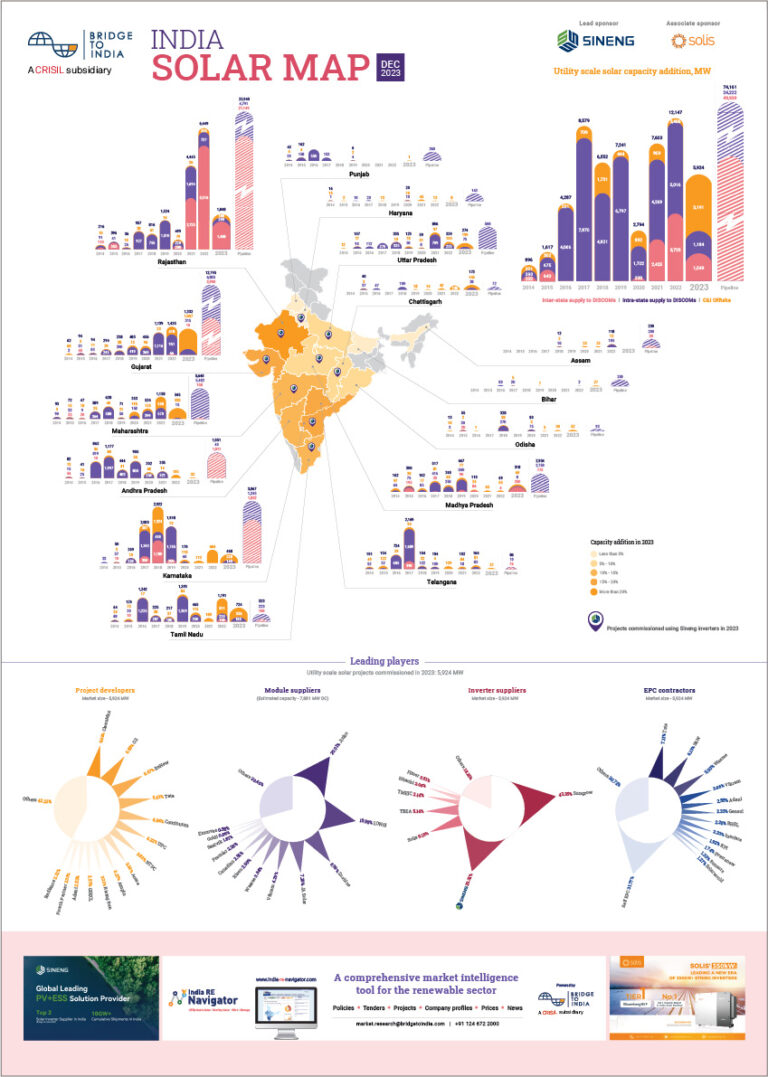There has been a series of positive developments on storage front in the last three months which should hopefully kickstart a cycle of growth for the business in India.
India’s central power sector regulator, CERC, has allowed energy storage facilities to provide secondary and tertiary services. World over, ancillary services are the primary revenue source for standalone battery storage. In the UK, Dynamic Containment (DC) or frequency response service launched late last year has exceeded 400 MW of assets and its high average price should provide participants with a significant uplift in revenue. Response profile for DC effectively extends the Fast Frequency Response (FFR) service, thereby decreasing response time required from assets. In the European Union, the new automatic frequency restoration reserve (aFRR) is expected to become a noteworthy market for battery storage.
After the June announcement of a new production-linked incentive (PLI) scheme to develop 50 GWh domestic manufacturing capacity for advanced battery storage technologies, the government has also initiated moves to stimulate demand. The Power Minister R.K. Singh announced recently that the government intends to come out with bids for 4,000 MWh of storage for ancillary services. SECI has already issued a notice for development of a 2,000 MWh standalone energy storage capacity. Separately, NTPC has invited an expression of interest for installation of 1,000 MWh grid-scale storage at its thermal plant sites across the country. NTPC intends to use thermal-cum-storage power to counter challenges posed by intermittency risk of large amounts of renewable energy.
Meanwhile, SECI has finally tied up PPAs for its 400 MW, Round-The-Clock (RTC) renewable power tender. Power would be purchased by DISCOMs in Delhi, Daman and Diu, and Dadar & Nagar Haveli. ReNew Power, the project developer, anticipates the project would require battery storage to supplement 1.3 GW renewable power capacity.
In another move, the Ministry of Power has waived inter-state transmission system (ISTS) charges for battery systems commissioned by 30 June 2025 provided that minimum 70% of their power requirement is met from solar and/ or wind power. ISTS charges for power supplied from such systems shall also be levied gradually: 25% of Short-Term Open Access (STOA) charges for first 5 years of operation, 25% increase every 3 years until 100% charges become applicable.
With limited prospects for new hydro or gas-fired generation, optimal sources to balance renewable power, storage is expected to play a critical role in decarbonisation of the power sector in India. As per the latest report by the US National renewable Energy Laboratory (NREL), storage could represent between 10-25% of India’s total installed power capacity by 2050. So far, the market has been slow to take off due to a number of financial and regulatory hurdles. Recent government and regulatory announcements are therefore highly encouraging.












